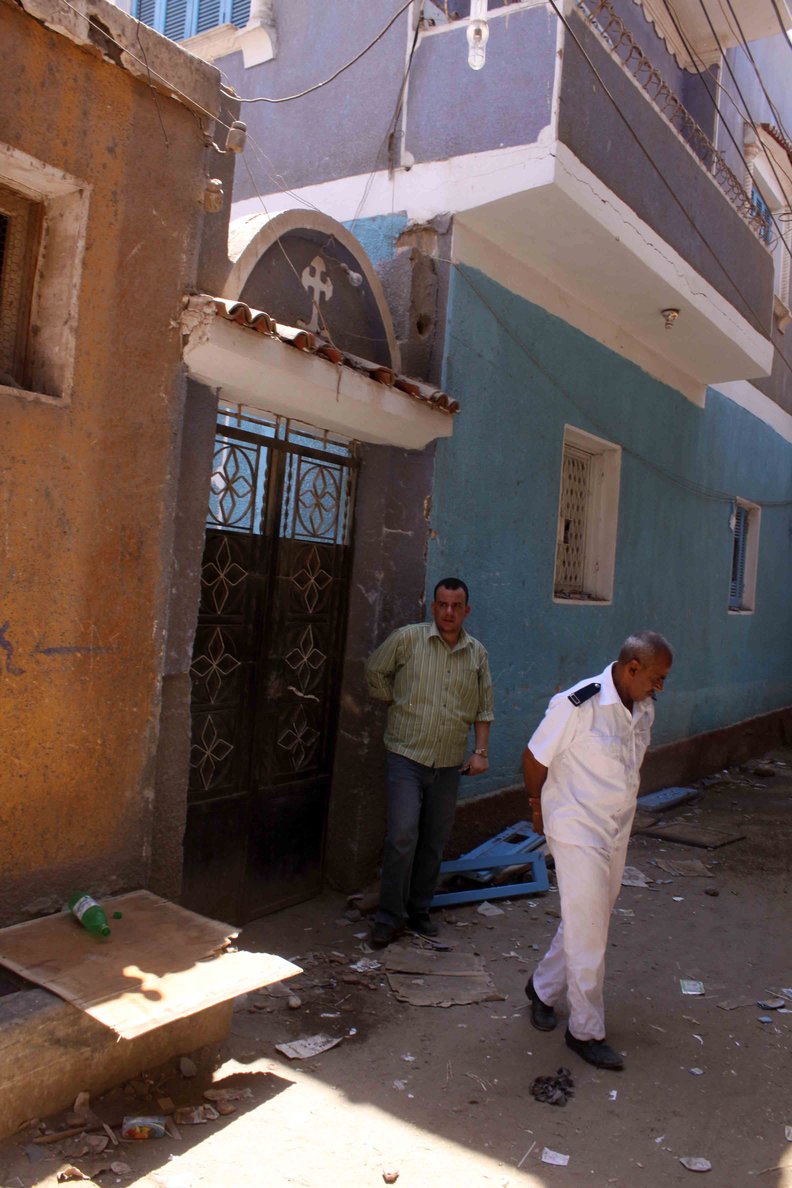CAIRO: Egyptian stock prices continued to erode yesterday, with the benchmark CASE 30 index sliding 4.9 percent to 7,850.03 pointsYesterday’s slump marked the blackest day in an already dark week for the CASE, as a slide which one analyst privately called a “panic attack showed no sign of letting up.
Most experts cited foreign selling as the root of the crash. Hatem Alaa, a senior analyst at the investment bank HC Brokerage, counted high inflation – chalked at 23.1 percent this Sunday – and interest rates as the “driving forces pushing foreign investors to move their Egyptian stock.
The price hikes approved by parliament on May 5, which made gas and other goods more expensive, vexed some investors, Alaa said. “There is already some skepticism about Egypt as a market that has been accumulating for the last three months.
Hashem Ghoneim, chief executive of El Nour Securities, called the situation “extreme during an interview with Reuters yesterday. “Panic is driving everybody to sell, he said, adding that developed markets are drawing more funds as they become cheaper.
As of press time, CASE representatives had not responded to requests for comment.
Foreign investors from the Gulf and elsewhere have started shifting their funds back to traditionally low-risk European markets as conditions there have improved, said one Egypt-based analyst, who asked not to be named because company policy did not authorize him to discuss the matter publicly. Softer oil prices in tandem with rampant inflation throughout regional markets like Egypt and Oman have also spurred investors to shrink their holdings here, he said.
The analyst said he does not expect the CASE 30 to drop lower than 7,500. The exchange’s “fundamentals are still solid, he said, predicting investors will eventually see that Egyptian stocks are undervalued and begin buying them again.
“[The drop] definitely has to reverse, said Alaa of HC Brokerage. “The only question is when. He predicted that a drop in the inflation rates will likely spark a turnaround.
Yesterday’s close notched the Egyptian exchange’s nadir since last summer, when it veered as low as 7,517 points. The index breached the 12,000 mark in April, meaning it has since lost more than a third of its value.
According to the local press, a group of around 30 investors gathered outside the stock exchange building on Tuesday, demanding that the exchange’s three-year chairman, Maged Shawki, step down.
A similar drop occurred earlier in Shawki’s tenure, when the market slipped from around 8,200 points to about 4,500 in early 2006. At the time of Shawki’s appointment, the CASE 30 was hovering around 5,000 points.
Orascom Construction Industries, the day’s most heavily traded stock by turnover, dipped 7 percent to last trade at LE 317 after declining by more than 9 percent in early trading.
Commercial International Bank (CIB) fell 6.6 percent to LE 44.82. Egypt’s largest listed lender posted a record profit in the second quarter.
Shares of Ezz Steel last traded 3.9 percent lower at LE 63 pounds, while Orascom Telecom lost 2.5 percent to LE 50.74.
Some stocks managed to weather the tumult, namely Orascom Hotels and Development, which was up 5.8 percent at LE 49.98.
Meanwhile, Misr Cement (Qena) rose 2.6 percent to LE 72.91, Credit Agricole Egypt was up by 0.92 percent to LE 14.29 and Arab Cotton Ginning jumped 1.5 percent to close the day’s trade at LE 6.70.
The Hermes index fell 3.7 percent to 692.46 points. The broader CIBC index shed 4.3 percent to 381.63 points.
Hisham Talaat Moustafa, who heads the hard-struck Talaat Moustafa Group, appeared on two popular Egyptian television shows earlier this week to quell “rumor-mongering, even suggesting it be outlawed, after murmurs of financial turmoil and his alleged flight from the country led his firm’s stock to tumble.
And as for Shawki? According to most analysts, he is merely a scapegoat for investors’ increasing frustration; his actual control over the market is limited.
